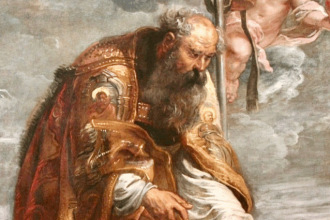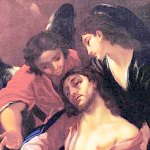Regis Martin
Putting it in precise Augustinian terms, it is the choice between the love of God and the love of self that will determine the outcome of a man’s life.
There are two forces at work in the world—gravity and grace—and each of us must choose to follow one or the other. There is no third way. Are we to be moved by the downward pull of the one, leading to dissolution and death? Or do we allow ourselves to be drawn upward by the other, which leads to everlasting life and the joys of Paradise? “Once a poor creature,” the poet George Herbert announces, “now a wonder,/ A wonder tortur’d in the space/ Betwixt this world and that of grace.”
So, it’s really a no-brainer, right? Yes, but what about those who choose not to choose? Who refuse to acknowledge even the least bit of tension “betwixt this world and that of grace,” having collapsed all the distinctions along the way? What becomes of them?
Dante calls them “the trimmers,” those whose fate is to fill the Vestibule of Eternity because, lacking “the good of the intellect,” they have no desire for the joys of Heaven, while Hell has no real appetite for them. “So many,” laments T.S. Eliot in a famous line from The Waste Land, “I had not thought death had undone so many.” Let the numberless throng continue to move its metaled way across London Bridge.
In short, it is the human predicament, from which there is no escape so long as we remain in the body. Consisting of two opposing forces that aim to capture the heart of man, broken since the time Adam and Eve lost their innocence, leaving our first parents to face, in the words of Milton’s Paradise Lost, “A long day’s dying, to augment our pain.”
And the point of all this in an essay about a saint who lived in the late fourth century? » Read More
https://theimaginativeconservative.org/2025/04/choice-love-god-love-self-regis-martin.html






